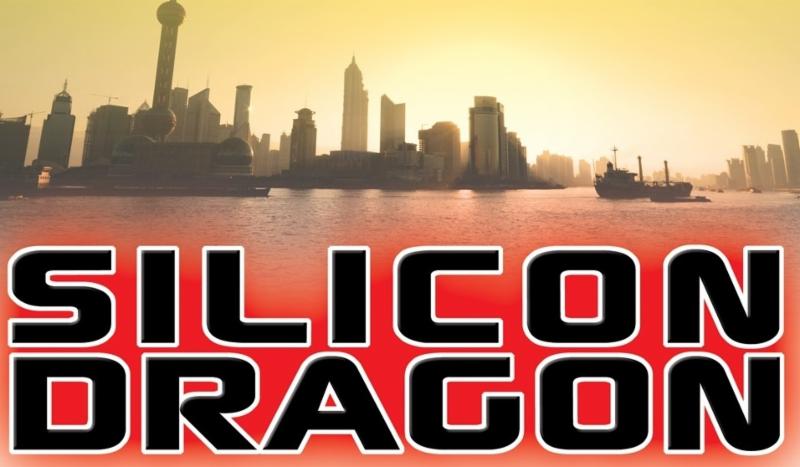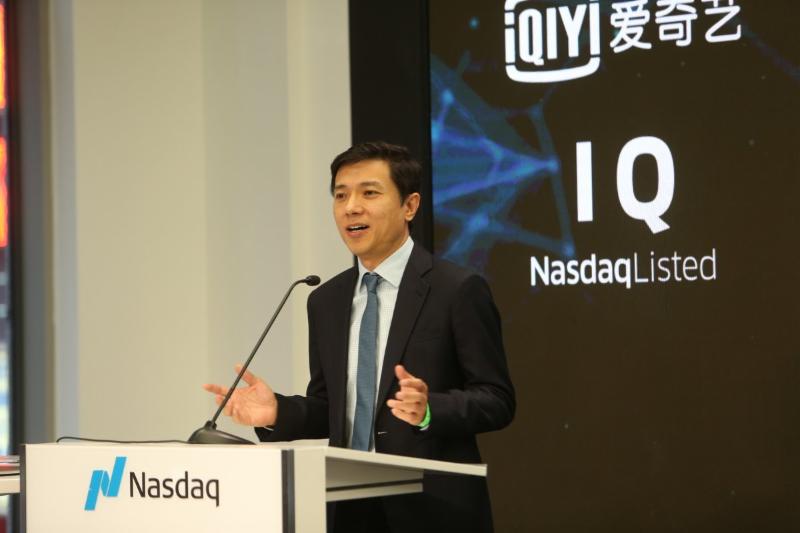Silicon Dragon
The Greater
Bay Area
VCs Meet
Nazar Yasin
Rise Capital
Kyle Lui
DCM
Robin Li
GGV Capital
Phil Chen
Horizons Ventures
Mario Aquino
FutureLabs Planet
Michael Wang
Legend Capital
Wei Zhou
China Creation Ventures
Figo Zhang
NLVC
with our partners
Cyberport,
KPMG, Sidley
Silicon Dragon
Beijing 2018
VC Spinouts, IPOs,
Mega Deals!
Featuring a who's who of VCs in China plus star founders
with our partners
Sheppard Mullin, DayDayUp,
AngelVest / SOSV
|
|
On The Circuit
Speaking here:
East Meets West Summit
April 12
San Francisco
Techonomy NYC
May 8-9
New York City
Speakers
|

To Receive
Silicon Dragon News
|

Join The
Several more
VC firms
just joined!
|
|
|
| |
Baidu's $2.2B IPO of iQIYI Cheers Robin Li
 China's BAT companies that have powered into next-generation technologies are capitalizing again.
Baidu, the B before Alibaba and Tencent, jumped into video streaming with an investment in iQIYI in 2010, then bought out co-investor
Providence Equity Partners in 2012. Last week, Baidu took its majority-owned video subsidiary public in the U.S., raising $2.2 billion.
Baidu co-founder
Robin Li was at Nasdaq for the IPO debut. That brought back memories of a beaming, younger Li proudly posing at Nasdaq Times Square headquarters when Baidu went public in 2005.
Shares in iQIYI fell slightly in their trading debut, leading public market investor Fred Liu of NY-based Hayden Capital to tweet that the IPO is proof that U.S. investors lack understanding and interest in Chinese company ADRs.
iQIYI is waging a pricey battle with
Tencent Video and Alibaba-own
Youku Toudou to attract viewers.
|
|
|
Silicon Dragon's Rebecca Fannin comments on CGTN: China's video streaming market and iQIYI IPO
|
Shanghai, New York Rivaling The Valley
A perennial question in Silicon Valley corridors is which market may eventually challenge its leadership.
KPMG does an annual survey of technology executives that gets at this question.
For the past couple of years, China has been gaining on the U.S. for tech innovation leadership but this year's report shows a solid vote for the U.S. as the most promising market for tech breakthroughs. (
Go figure!)
But Asia won marks. Of ten rival cities, seven are in Asia, including two in China - Beijing and Shanghai.
 Chinese co-working space
UCommune opened its first space in the U.S., in the Wall Street area at Serendipity Labs. Los Angeles is next. UCommune, one of the larger outfits in China's booming workspace markets, has 130 locations in China and recently acquired two rivals,
You Space and
Wedo as the sector consolidates. Venture backers include
Sinovation Ventures, Sequoia Capital China, ZhenFund and
Matrix China.
UCommune founder and chairman
Dr. Mao Daquing and co-founding shareholder
Omer Ozden of RockTree Capital were in NYC to celebrate the launch.
FUNDING DEALS
Alibaba buys remaining shares of China's food-delivery startup Ele.me valued at $9.5 billion, as the e-commerce giants moves further into semi-related retail businesses.
AI and security intelligence startup Aella Data comes out of stealth mode with VC investor Feng Deng of Northern Light Venture Capital as a backer.
Sequoia Capital China has led a $50 million, Series C investment in Chinese oncology startup Adagene. Plus, Singapore's GIC backed Chinese drug maker Hua Medicine in a $117 million fourth round.
Alphabet X spinout
Dandelion in NY raised $4.5 million to build out its geothermal heating and cooling system for homes. ZhenFund and NEA were investors.
Qiming Venture Partners has co-led a $12 million Series A funding round for the personal health testing service run by
LetsGetChecked.
FUNDS Influential angel investor ZhenFund is eyeing a $190 million fifth venture fund since 2011.
IPOs
OneSmart International Education
, a K-12 after-school education company, debuted on the NYSE and raised $179 million, one week after ed startup Sunlands. It's founded by a
Harvard Business School
graduate and funded by
Carlyle
and
Goldman
's VC arm.
Singapore-based oncology specialist
Aslan Phar
ma has filed for a $86.2 million IPO on Nasdaq.
NOTEWORTHY
China spent an estimated $279 billion on R&D, an increase of 14 percent. Don't expect these numbers to fall anytime soon as China invests in technologies of the future and goes all out to to win the tech race.
|
|
|